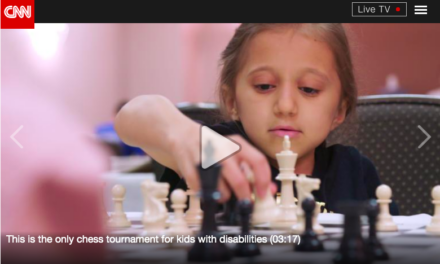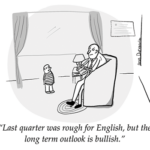If you’re a veteran education pro, the reporter who’s asking you questions may be relatively new to the beat, and may not know all the acronyms and personalities you refer to.
And you may know that she or he may not have much as much guidance from colleagues or newsroom editors as in the past, given the downsizing that’s gone on in journalism.
But it might be a mistake to think that she or he isn’t backed up by some expert support and guidance, folks with just as much or more experience as you may have who are suggesting good questions to ask and pointing to new sources of reliable information.
One key source of information and support is the Education Writers Association’s behind the scenes Public Editor, Emily Richmond (pictured above), who spends much of her time helping beat reporters with daily stories and long-term projects.
Though she was herself for a long time a beat education reporter (in Las Vegas, among other places), Richmond describes the one-on-one work with journalists as “the best part of my job.”
The national association (of which I’m a member) also has its well-known email listserv, and now has a mentoring program pairing newbies with veterans.
The new program includes 20 reporters from a wide range of outlets and the goal is to help expand the newer reporters’ knowledge and develop them into stronger journalists. (It’s also a good opportunity for veteran reporters to brush up on their skills and get a peek into someone else’s workday.)
Richmond wishes she’d reached out more and taken advantage of training and support opportunities when she was on the beat. “I think I saw myself as alone in the desert and I wasn’t.”
The setup isn’t perfect, of course. Neither Richmond nor the mentors know the district or region that the new reporters are covering as well as another local education report might, or a veteran editor.
And there’s also the danger of getting new reporters caught between what their mentors or Richmond have to say and what the editors actually want.
“I’m not replacing their editor,” cautions Richmond. “I’m providing additional support.”
There’s no changing the fact that there are fewer people doing more work. “Gone are the days of two or three education reporters on a team,” says Richmond about most newspapers these days.
Even more, reporters these days are being asked to cover both K-12 schools and higher education. “The beat size has doubled suddenly, but number of hours in the day has not changed,” she notes.
There are some upsides, however. One is that reporters covering K-12 and higher education can think about doing more comprehensive stories than in the past. Another is that data and software to manage them are better now than they used to be. There are also a handful of new and expanded education-focused news sites to work and/or compete with.
What’s the future look like in terms of topics and approaches in education journalism? The story trends that Richmond sees being big in 2015 include segregation, equity, and data-based stories that aren’t necessarily long in-depth pieces that take months to produce (and tons of time to read). Richmond describes these bite-sized pieces as “explanatory pieces using data in a common-sense way.”
There’s also less focus on digging up secrets than there used to be, according to Richmond. The thrill of the chase is still there, but in the age of social media it might not be seen as worth it to spend a ton of time on something that’s going to be replicated instantly.
I’m not sure I like this — someone’s got to dig up secrets, right? — but I’m not sure I can argue against its logic, either. Meantime, we’ll see how much of a difference the new mentoring program can provide. It seems like as good approach as may be possible, given the turnover on the beat and the decline in in-house support for reporters. One hidden benefit may be encouraging newer education reporters to stick with the beat.
Images via EWA. See more information for new reporters here. You can reach Richmond at @EWAemily.
ABOUT THE AUTHOR

Alexander Russo
Alexander Russo is founder and editor of The Grade, an award-winning effort to help improve media coverage of education issues. He’s also a Spencer Education Journalism Fellowship winner and a book author. You can reach him at @alexanderrusso.
Visit their website at: https://the-grade.org/












